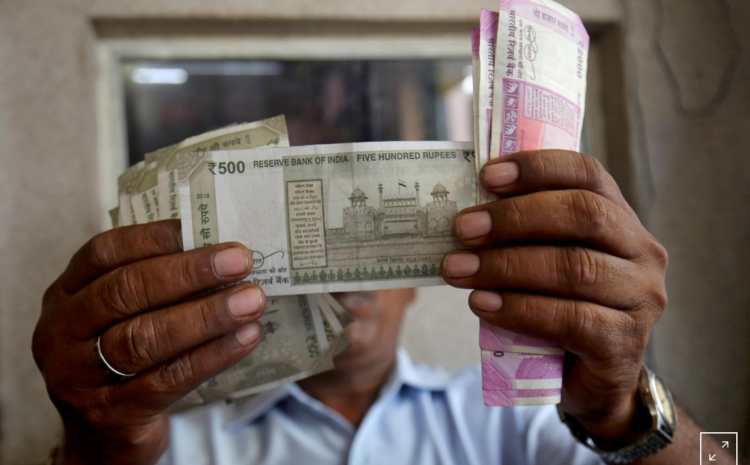
A cashier checks Indian rupee notes inside a room at a fuel station in Ahmedabad, India, September 20, 2018. REUTERS/Amit Dave/Files
NEW DELHI (Reuters) – India’s fiscal deficit touched a record $88.5 billion in the April-June quarter, 83.2% of the target for the whole of the current fiscal year, reflecting the impact of the coronavirus pandemic on tax collections and as the government front-loaded its spending.
The deficit is predicted by private economists to cross 7.5% of GDP in the 2020/21 fiscal year beginning April, from initial government estimates of 3.5%, due to a sharp economic contraction caused by the COVID-19 outbreak.
The economy is forecast to shrink 5.1% in the current fiscal year, and 9.1% under a worst-case scenario, according to analysts in a Reuters poll, its weakest performance since 1979.
Government data released on Friday showed total net federal tax receipts in three months through June declined more than 46% year-on-year to 1.35 trillion rupees ($18.05 billion), compared with 2.51 trillion rupees a year ago, even though taxes on fuel products have been increased.
The number of COVID-19 cases jumped to 1.64 million in India on Friday, while the death toll rose to 35,747.
Over three months, total expenditure rose 13% year-on-year to 8.16 trillion rupees, compared with 7.22 trillion rupees a year ago, as the government increased spending on free foodgrains and rural jobs programmes for millions of migrant workers.
Economists said a more than two months-long lockdown since late March has hurt economic activity in Asia’s third largest economy, impacting tax collections and the government’s plans to raise revenue through privatisations of state-run companies.
New Delhi has increased its market borrowings target to 12 trillion rupees for the current fiscal year, from earlier estimates of 7.8 trillion rupees, to fund the budgeted spending.
Reporting by Manoj Kumar; Editing by John Stonestreet and Alex Richardson
